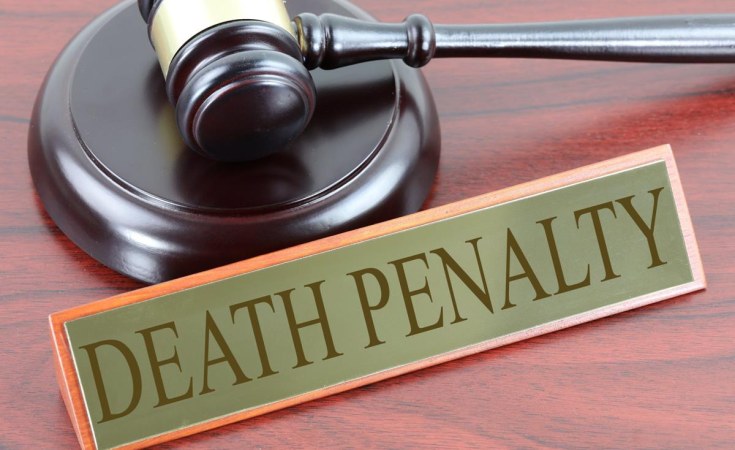ZIMBABWE has now formally abolished the death penalty for all crimes, civil and military, after President Mnangagwa signed the Death Penalty Abolition Act, unanimously passed by Parliament, and had it gazetted into our law on New Year's Eve.
This adds Zimbabwe to the majority of countries, now 114 including 25 in Africa, that have formally abolished the death penalty for all crimes with another 10 having abolished it for all crimes except certain military offences in time of war.
Zimbabwe has moved from the list of being abolitionist in practice, with no executions for almost 25 years, to abolitionist in law.
The Government has made it clear that the abolition went beyond the strong repugnance of maintaining old colonial laws that imposed the death penalty for a wide range of crimes, the list being slashed in several legal changes since independence, but also reflected Zimbabwe's commitment to adhering to the highest standards of human rights.
The Bill started off as a private members Bill by an opposition Member of Parliament, but Cabinet decided it was time to formalise Zimbabwe's effective abolitionist stance and took it over as a Government Bill.
That allowed the resources of the Attorney-General to perfect the draft. But the double backing ensured unanimity in Parliament from the start, the only debate centring on ensuring everything was covered.
The effective phrase is that "notwithstanding any other law no court shall impose sentence of death upon a person for any offence, whenever committed".
The new law goes beyond this blanket ban as Parliament in its unanimous determination to abolish the death penalty went for a belt and braces approach and hunted down the "any other laws" where it still appeared.
There were five of them where the penalty was potentially possible if not obviously Constitutional. So there is now no Zimbabwean law that allows the death penalty to be imposed or carried out. There were 62 prisoners still on death row when the new Act became law, all sentenced for aggravated murder. They now go back to the High Court for resentencing.
Because of past Presidential amnesties commuting to life imprisonment all on death row for more than 10 years, all 62 are almost certain to spend another good few years behind bars, and some may spend the rest of their lives in prison, depending on what the new sentencing judge considers appropriate.
But as of Tuesday they are just very long-serving prisoners, no longer sitting on death row.
The abolition Act does impose an effective 20-year minimum sentence for aggravated murder, the only crime where the post-independence courts have ever imposed a death sentence and the only crime where the Constitution allowed a death penalty. But the courts are able to push this as high as life imprisonment when this is seen as appropriate.
Zimbabwean courts are not weak when it comes to murder and the 20-year minimum will require huge mitigating circumstances and a borderline case.
In recent years, the High Court has tended to work on a 30-year term for an "ordinary" murder, but has the right to sentence to life imprisonment for the extraordinary murders.
The impending introduction of a parole board should allow the High Court to set a minimum term behind bars before parole is possible in each individual case and even making it clear that parole should not be granted to the worse killers with life sentences.
Besides the blanket ban "notwithstanding any other law" and removing any mention of the death sentence by a civil court in four Acts, a late amendment to the abolition Act also amends the Defence Act to make it clear that death sentences imposed by a court martial, and none have been imposed since independence, on a serving soldier or airman shall automatically be changed to life imprisonment in a civilian prison with no release possible for at least 20 years, aligning military law with civilian law.
Soldiers, but not civilians, could potentially be sentenced to death during a state of emergency.
Research has found that the death sentence is not a deterrent to murder. The deterrent is rather a near certainty of being arrested and then serving a very long prison sentence.
Here the Zimbabwe Republic Police has an exceptional record, the number of unsolved murders being trivial, and must maintain this priority of hunting down killers when allocating scarce resources.
Most arrests for murder, and there are a lot, end up with trials and convictions for culpable homicide or blameworthy death, there being no intent to kill, but rather reckless violence in something like a bar fight, so we need to look at the murder convictions to get our true murder rate, which is low.
Our Constitution gives Parliament the option to pass a law allowing a death penalty for adult men convicted of aggravated murder, the only possible Constitutional death sentence.
Parliament has now quite forcibly and unanimously declined to exercise that option, and it was only an option not a requirement, so the new Act is quite Constitutional although when the Bill went to Parliament it had to be carefully reworded.
Oddly, the removal of this subsidiary sub-clause in the Declaration of Rights clause guaranteeing the right to life needs a referendum as well as the now guaranteed two thirds Parliamentary majority, but presumably we can sort that out whenever we call all voters to the polls simply by having an extra ballot paper and remove the last mention of death penalties from our law. Only seven SADC states still retain the death penalty, but Zambia only allows it in some military law and two others are classified as abolitionist in practice.
SADC is now the first African region with an abolitionist majority following the Zimbabwean change and the momentum from our change could see the region going further by being the first in Africa to be totally abolitionist.


